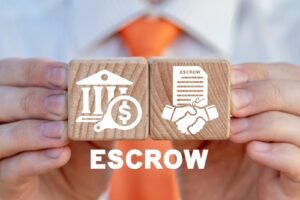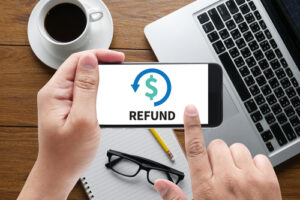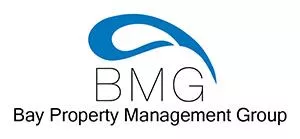What Is an Escrow Refund? A Guide for Real Estate Investors
Many mortgage companies require you to open an escrow account when you buy a home or investment property. However, this process can be confusing if you’re unfamiliar with how an escrow account works. Generally, there are two escrow accounts involved in real estate transactions. One is used for earnest money, and your mortgage lender requires one to handle property taxes and homeowner’s insurance. Today’s blog will discuss how a mortgage escrow account works and when you may get an escrow refund.

Contents of This Article:
- What Is a Mortgage Escrow Account?
- When Do You Get an Escrow Refund?
- What Are Escrow Refund Checks?
- How Do You Calculate Your Escrow Refund Amount?
- Simplify Your Business With Property Management
What Is a Mortgage Escrow Account?
Real estate investors must handle several finances, whether it’s for your rental property or personal home. So, whether you’re an investor or a property management company in Northern Virginia, join us while we discuss how a mortgage escrow account works.
 When you close on a real estate deal, your mortgage lender sets up a bank account for you, known as an escrow account. As stated above, you send money to this account to cover property taxes and home insurance.
When you close on a real estate deal, your mortgage lender sets up a bank account for you, known as an escrow account. As stated above, you send money to this account to cover property taxes and home insurance.
Instead of paying bills from your checking account, your mortgage lender collects tax and insurance bills through an installment plan as part of your mortgage payments.
The main reason mortgage companies use escrow accounts is to ensure you’re paying bills on time. In other words, your lender holds the money in your escrow account and pays the bills on your behalf. As such, you don’t manage the escrow account; your mortgage lender does.
There are several benefits to an escrow account and a few disadvantages. Let’s discuss those next.
Benefits of an Escrow Account
- Automatic Bill Pay- Your escrow account ensures your bills are paid whenever they’re due. This way, you can avoid late fees and penalties for missing payments.
- Easier to Budget- Paying your mortgage lender a fixed amount of money to cover house bills can be easier than budgeting for each property expense.
- Peace of Mind- Without worrying about budgeting for each bill, an escrow account allows you to make one simple deposit to cover some home expenses.
- Fewer Surprises- Your lender tells you how much to deposit into your escrow account each month. That way, you don’t have to find out yourself if taxes increase–your lender will tell you.
Cons of an Escrow Account
- High Monthly Payments- Monthly mortgage payments include property taxes and homeowner’s insurance. This means you’ll pay a significant amount each month to cover these expenses.
- Less Control- If you want full control over your bills and expenses, you might not like the idea of an escrow account. You might worry about missing payments or simply not knowing how much your bills cost.
- No Accruing Interest- Some states require lenders to use escrow accounts that pay interest. However, if this doesn’t apply to you, you should put your money in an account that grows with interest.
When Do You Get an Escrow Refund?
Now that we’ve gone over what an escrow account is, you may wonder if your money is refundable. The answer is yes, and here’s how.
Escrow accounts are regulated by the Real Estate Settlement Procedures Act (RESPA). This act allows mortgage lenders to keep one-twelfth of your payments to pay for your property bills. Additionally, it allows lenders to keep up to two months’ worth of additional payments as a safeguard.

That said, RESPA limits how much money can be kept in an escrow account. For instance, most guidelines prevent more than the current month, plus two months’ worth of payments, from being held in the account. You may be eligible for a refund if there’s more than the alluded amount.
Furthermore, the guidelines state that there must be more than $50 of excess money to request a refund. If there’s less than $50 extra, your mortgage lender can keep it for future bills.
It’s important to note that an escrow refund happens once you’ve fully settled your mortgage payment. Then, if there’s an excess balance in the escrow account, it’s returned to you by your mortgage lender within 20 days after finishing the mortgage repayment.
Aside from overpaying your mortgage, you may get an escrow refund if you’re in the following scenarios:
- Tax Bills Get Lowered- If property tax bills change over time, you could get an escrow refund if you overpay.
- You Fully Pay Your Mortgage- As mentioned above, you’re eligible for an escrow refund if you have a remaining balance after paying your mortgage.
- You Change Your Insurance Provider- If you switch to a provider with lower rates, you’re eligible for an escrow refund.
What Are Escrow Refund Checks?
Once you request an escrow refund, RESPA requires your mortgage company to refund you within 30 days. As you might imagine, your refund check contains the amount of excess money that was in the escrow account.
You can request a refund at any time once you identify an overage. Then, after the annual escrow account analysis, your lender will likely issue you a refund check. During the examination, lenders check to see if your escrow payments match the monthly bills paid out of the account.
For instance, if your tax bills change and you continue paying the same amount, you’ll likely have a surplus in your escrow account. In that case, when your loan servicers run the analysis, they will recognize the discrepancy and issue you an escrow refund check. However, you may have to make a formal request if they don’t automatically send you a refund check.
How Do You Calculate Your Escrow Refund Amount?
Calculating your escrow refund amount is simple. But first, you must know how much you pay in monthly escrow payments. Add your property taxes and homeowner’s insurance expenses to determine how much you owe each month. Remember that your lender can request a cushion for two months’ payments.

Once you know how much you need in your account, look at how much you have in your escrow account. You may be eligible for a refund if there’s more than $50 extra.
How to Get Your Refund
If you don’t automatically get your escrow refund, you have to make a formal request to your mortgage lender. To do this, you’ll have to provide documentation to prove your claim. For instance, you may need letters from your tax accessor showing changes in taxes, documents showing new insurance policies, or recent tax bills.
Then, when requesting your refund, make sure to send a detailed request letter to explain your situation. Making your request as detailed as possible can prevent a follow-up, speeding up the refund process. Keep in mind that it may take weeks, sometimes months, to get your escrow refund.
Simplify Your Business With Property Management
Setting up an escrow account can be extremely helpful when buying a property, especially if you’re eligible for an escrow refund. Not only does it benefit you, but it also benefits the mortgage lender, making it mutually beneficial. In addition, simplifying the processes of buying and owning rental properties can save investors time, stress, and money.
Another way to simplify your rental business is with comprehensive property management. Whether you own one rental property or want to expand with several rentals, managing every aspect takes a ton of time and resources. If you don’t have the time or don’t want the responsibility, reach out to Bay Property Management Group.
Our team of qualified professionals can help ensure that all your business needs are met. So, contact Bay Property Management Group to learn more about our services and connect with a property manager today.



